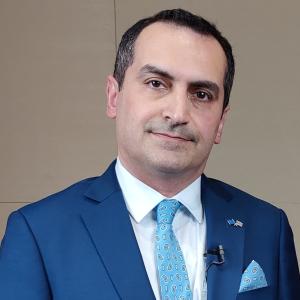EU, UNDP extend support for vocational education development in Azerbaijan
24 May 2018
- With the launch of a new, USD 3.4 million project, the European Union and the United Nations Development Programme join forces to strengthen the vocational education and talent development portfolio of Azerbaijan, in line with labour market needs and national development plans in the country.

The project titled ‘Modernising Vocational Education and Training (VET) Centres in Azerbaijan’ came into effect in 2017 and will be implemented through 2020, focusing primarily on strengthening the vocational education and development capacity of two regions in Azerbaijan –Ganja and Jalilabad.
In both regions, the project will capitalise on developing local talent as a pivotal backbone for a robust and knowledge-based economy. It will ensure that the most vulnerable sections of the workforce, including young people, women and persons with disabilities, have access to skills and resources that match labour market demand. To this end, UNDP will support national institutions in designing and rolling out new vocational education programmes in the non-oil sectors.
The concept of quality education is central to the 2030 Agenda and is one of the Sustainable Development Goals, popularly known as Global Goals. Specifically targeting inclusive and equitable education and lifelong learning opportunities for all, Goal 4: Quality Education aims to provide equal access to affordable vocational training and ensure that no one is left behind.
With the labour markets becoming increasingly specialised, the demand for high quality professional education is currently on the rise. Tapping on this demand, the Government of Azerbaijan has been implementing a wide range of policy programs and strategies aimed at fostering a more competitive national VET system.
To support the Government in these efforts, the project on Modernising Vocational Education and Training (VET) Centres in Azerbaijan led by the EU and UNDP is set to enhance the quality, equality and inclusion in education as well as to ensure the adherence of the national vocational education and training system to European standards and best practices.
Today, the first of the two regional components of the project –Support to the Establishment of Ganja Regional Industrial VET Competence Centre, kicks off in Ganja, bringing together 60 representatives of the international community, local government, the private sector and the faculty of VET schools. Highlighting the primary vision for this new partnership for development, the project kick-off meeting also coincides with the mission of the Directorate-General for Neighbourhood and Enlargement Negotiations (DG NEAR) to Azerbaijan.
Emphasising the importance of vocational competence, Head of the EU Delegation Ambassador Kestutis Jankauskas noted that the “VET sector is a prerequisite for a modern, diverse economy”. He added that “with 40% of the population below 25 years, education, including vocational education and training, is a key investment for the long-term economic resilience of Azerbaijan.’
As the project activities unfold in Ganja, they will aim to improve the quality and overall competitiveness of technical education both in Ganja city and surrounding regions, ensuring that vocational education offered at the VET Competence Centre meet international standards as well as specific industry requirements. This will be achieved through strengthening the capacities of the Ganja State Vocational Education Centre on Industry and Technology.
Speaking of a strategic outlook for professional education development, Deputy Resident Representative for UNDP in Azerbaijan Alessandro Fracassetti emphasised that “continuous support for the modernisation of vocational education and professional training institutions in the country should be directed at long-term capacity-building and structural development of these institutions.”



